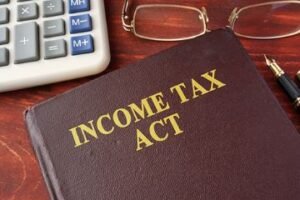Supreme Court Explains Scope Of Judicial Review Of Administrative Action Based On Subjective Opinion/Satisfaction Of Authority
Case: Amarendra Kumar Pandey vs Union of India
Coram: Justices Surya Kant and JB Pardiwala
Case No.: CA 11473-11474 OF 2018
Court Observation: “The action based on the subjective opinion or satisfaction can judicially be reviewed first to find out the existence of the facts or circumstances on the basis of which the authority is alleged to have formed the opinion”
Where an Act or the statutory rules framed thereunder left an action dependent upon the opinion of the authority concerned, by some such expression as ‘is satisfied’ or ‘is of the opinion’ or ‘if it has reason to believe’ or ‘if it considered necessary’, the opinion of the authority is conclusive, (a) if the procedure prescribed by the Act or rules for formation of the opinion was duly followed, (b) if the authority acted bona fide, (c) if the authority itself formed the opinion and did not borrow the opinion of somebody else and (d) if the authority did not proceed on a fundamental misconception of the law and the matter in regard to which the opinion had to be formed.
The action based on the subjective opinion or satisfaction, in our opinion, can judicially be reviewed first to find out the existence of the facts or circumstances on the basis of which the authority is alleged to have formed the opinion. It is true that ordinarily the court should not inquire into the correctness or otherwise of the facts found except in a case where it is alleged that the facts which have been found existing were not supported by any evidence at all or that the finding in regard to circumstances or material is so perverse that no reasonable man would say that the facts and circumstances exist. The courts will not readily defer to the conclusiveness of the authority’s opinion as to the existence of matter of law or fact upon which the validity of the exercise of the power is predicated.
The doctrine of reasonableness thus may be invoked. Where there are no reasonable grounds for the formation of the authority’s opinion, judicial review in such a case is permissible. [See Director of Public Prosecutions v. Head, (1959) AC 83 (Lord Denning).
When we say that where the circumstances or material or state of affairs does not at all exist to form an opinion and the action based on such opinion can be quashed by the courts, we mean that in effect there is no evidence whatsoever to form or support the opinion. The distinction between insufficiency or inadequacy of evidence and no evidence must of course be borne in mind. A finding based on no evidence as opposed to a finding which is merely against the weight of the evidence is an abuse of the power which courts naturally are loath to tolerate. Whether or not there is evidence to support a particular decision has always been considered as a question of law. [See Reg. v. Governor of Brixton Prison, Armah, Ex Parte, (1966) 3 WLR 828 at p. 841].
It is in such a case that it is said that the authority would be deemed to have not applied its mind or it did not honestly form its opinion. The same conclusion is drawn when opinion is based on irrelevant matter. [See Rasbihari v. State of Orissa, AIR 1969 SC 1081].
In the case of Rohtas Industries Ltd. v. S.D. Agarwal and another, AIR 1969 SC 707, it was held that the existence of circumstances is a condition precedent to form an opinion by the Government. The same view was earlier expressed in the case of Barium Chemicals Ltd. and another v. Company Law Board and others, AIR 1967 SC 295.
purpose for which the power is to be exercised. In other words, if an inference from facts does not logically accord with and flow from them, the Courts can interfere treating them as an error of law. [See Bean v. Doncaster Amalgamated Collieries, (1944) 2 All ER 279 at p. 284]. Thus, this Court can see whether on the basis of the facts and circumstances found, any reasonable man can say that an opinion as is formed can be formed by a reasonable man. That would be a question of law to be determined by the Court. [See Farmer v. Cotton’s Trustees, 1915 AC 922]
Thirdly, this Court can interfere if the constitutional or statutory term essential for the exercise of the power has either been misapplied or misinterpreted. The Courts have always equated the jurisdictional review with the review for error of law and have shown their readiness to quash an order if the meaning of the constitutional or statutory term has been misconstrued or misapplied. [See Iveagh (Earl of) v. 23 Minister of Housing and Local Govt., (1962) 2 QB 147; Iveagh (Earl of) v. Minister of Housing and Local Govt. (1964) 1 AB 395].
Fourthly, it is permissible to interfere in a case where the power is exercised for improper purpose. If a power granted for one purpose is exercised for a different purpose, then it will be deemed that the power has not been validly exercised. If the power in this case is found to have not been exercised genuinely for the purpose of taking immediate action but has been used only to avoid embarrassment or wreck personal vengeance, then the power will be deemed to have been exercised improperly. [See Natesa Asari v. State of Madras, AIR 1954 Mad 481].
Fifthly, the grounds which are relevant for the purpose for which the power can be exercised have not been considered or grounds which are not relevant and yet are considered and an order is based on such grounds, then the order can be attacked as invalid and illegal. In this connection, reference may be made to Ram Manohar v. State of Bihar, AIR 1966 SC 740; Dwarka Das v. State of J. and K., AIR 1957 SC 164 at p. 168 and Motilall v. State of Bihar, AIR 1968 SC 1509. On the same principle, the administrative action will be invalidated if it can be established that the authority was satisfied on the wrong question: [See (1967) 1 AC 13].
Previous Posts
Karnataka High Court Dismisses Grasim’s Plea Against Increase In Employees Retirement Age To 60 Yrs
S. 50 Of NDPS Act- Presence Of Magistrate During Search Of Contraband Articles Not Mandatory If Accused Waives His Right: Delhi High Court Download Judgement
Keywords
Judicial Review Of Administrative Action, Scope Of Judicial Review Of Administrative Action




